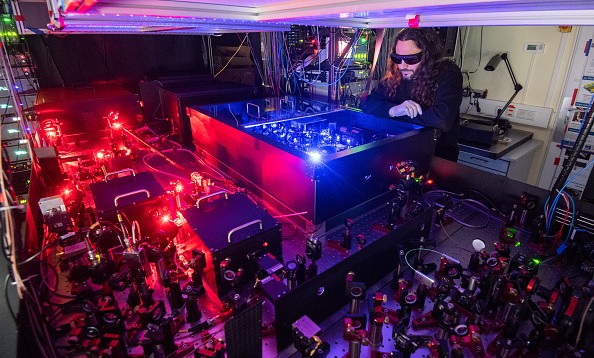
Researchers out of the University of Innsbruck have fabricated a quantum computer that leverages a complex quantum digit system as opposed to the traditional qubits. For those who may not know how a quantum computer works, qubits are simply quantum bits, where the bits are binary digits that can hold either of two values: 0 or 1, which correspond to electrical values of off and on, respectively. Bits are utilized in every computer to store information, often within a group of eight (called a "byte") or more (kilobyte, gigabyte, etc.), and rely on binary information to contain necessary computational data. Hence, 8-bit to 64-bit processors.
The aforementioned qubits are more of the same thing, except they go beyond ones and zeroes and are replicated through quantum technology for the purposes of far more advanced and complex workloads, such as machine learning algorithms, sophisticated cryptography, and molecular modeling, particle physics, and much more. Via the scientists' methodology, their quantum computer takes these qubits a leap further by implementing calculations using quantum digits as opposed to qubits. These aptly-termed "qudits" thereby allow the quantum computer seemingly unlimited computing power - at least in comparison to our own current standards.
Related Article: James Webb Space Telescope's First Images Fascinate Astronomers; Open More Discoveries For Exoplanets
Traditional quantum computers have the capacity to access additional quantum states in workloads yet typically only use up to two for specific purposes. Going beyond this level usually generates less reliable data, yet Innsbruck researchers devised a way for the quantum computer to leverage all of these additional tiers by using a computer storing information in trapped calcium atoms existing in eight different states. In essence, the researchers showed that their quantum computer could utilize its full power without breaking a sweat.
The scientists published their findings in Nature Physics today, July 21, under the title "A universal qudit quantum processor with trapped ions." Their collective research underscores the potential in quantum computing, where future workloads theoretically output data on issues already expressed in audits. This means that approaches in quantum computing will be far more complex and foolproof, finding use cases in areas like astrophysics, artificial intelligence, and much more.
"Working with more than zeroes and ones is very natural," explains research lead Martin Ringbauer, experimental physicist at the University of Innsbruck, "not only for the quantum computer but also for its applications, allowing us to unlock the true potential of quantum systems."
![Apple Watch Series 10 [GPS 42mm]](https://d.techtimes.com/en/full/453899/apple-watch-series-10-gps-42mm.jpg?w=184&h=103&f=9fb3c2ea2db928c663d1d2eadbcb3e52)



